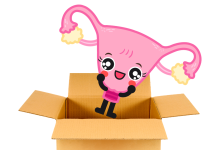As the intimate and unique details of a mother’s birth story, a child’s diagnosis story is much the same. And depending on how traumatic it can be, the mother of a special needs child may take years to share how they’re feeling or coping. See, a diagnosis, no matter the outcome, seals the fate that your child is different and that the sense of normal you pictured in your journey of motherhood is no longer there. For many, it can be earth-shattering.
Diagnosis brings a range of emotion, high and lows, and an endless, chaotic run on an emotional rollercoaster— one that often doesn’t end with the same passengers on the other side.
For our family, that diagnosis was Type 1 Diabetes. At two and a half years old, our vibrant, high energy toddler was hospitalized, visibly a shell of who he was before. Unlike Type 2 Diabetes, which many are familiar with, Type 1 Diabetes is an auto-immune disease where our immune system mistakenly begins attacking the insulin-producing (beta) cells of our pancreas. Type 1 Diabetics are dependent upon insulin administration their entire life. Insulin is critical in maintaining blood sugar levels and is necessary to their livelihood and outlook.
After being released from the hospital after three days, three days of what felt like a blur of education, learning how to make the most of your child’s new status, and a referral for a specialist, I was a shell of who I was as well. We left the hospital, knowing we would never be the same.
Accepting and learning how to live with a diagnosis is exhausting.
You’re trying to deal with preconceived notions about a disease or illness. Still, you’re especially exhausted when you’re attempting to help others become educated as well as process your new normal. Although you may receive an exorbitant amount of support, care, and love, you can also feel tapped out on positive mantras. Focusing on the positive can leave you feeling like your hurt was overlooked. Of course, there is no denying how crucial “positive vibes” can be to changing outlook, but diagnosis is messy, and we must acknowledge the mess.
 The dark side of this positivity has recently been coined as “toxic positivity.” Defined as the excessive and ineffective overgeneralization of a happy, optimistic state across all situations, toxic positivity results in the denial, minimization, and invalidation of the authentic human emotional experience. It’s a slippery slope in which many who are naturally empathetic may not even know they’re doing it.
The dark side of this positivity has recently been coined as “toxic positivity.” Defined as the excessive and ineffective overgeneralization of a happy, optimistic state across all situations, toxic positivity results in the denial, minimization, and invalidation of the authentic human emotional experience. It’s a slippery slope in which many who are naturally empathetic may not even know they’re doing it.
So, how do you show authentic empathy and support for a mother dealing with diagnosis? Shift from teaching to listening. Shift your ‘but’ to a ‘how’.
Instead of ‘but you’re lucky at least it’s not …..” try “How are you doing? You’re doing a great job managing all of this. I see you and all that you’re going through.”
Instead of ‘but my sister in law’s first cousin also has …. and she’s fine’ try “How can I support you? I know very little about …. But I want to know more.”
Instead of “but, you’ll get over it, just change your mindset,” try “how amazing are you? I know this situation is hard, and I am impressed with how you are coping. Know you don’t have to have it together or pretend to be okay if you’re not.”

Instead of “but have you tried doing …. I heard it can help people with ….” try “How can I learn more about your child’s current routine and/or regimen? I would love to be of help whenever you need a break if you’re open to it.”
All seem like such simple statements, yet hearing can be healing. Signaling your recognition of another mother’s pain builds authentic trust and a safe space to release their emotions. Next time you’re in a place to offer that care and concern, try using these statements, so another mother feels heard.











